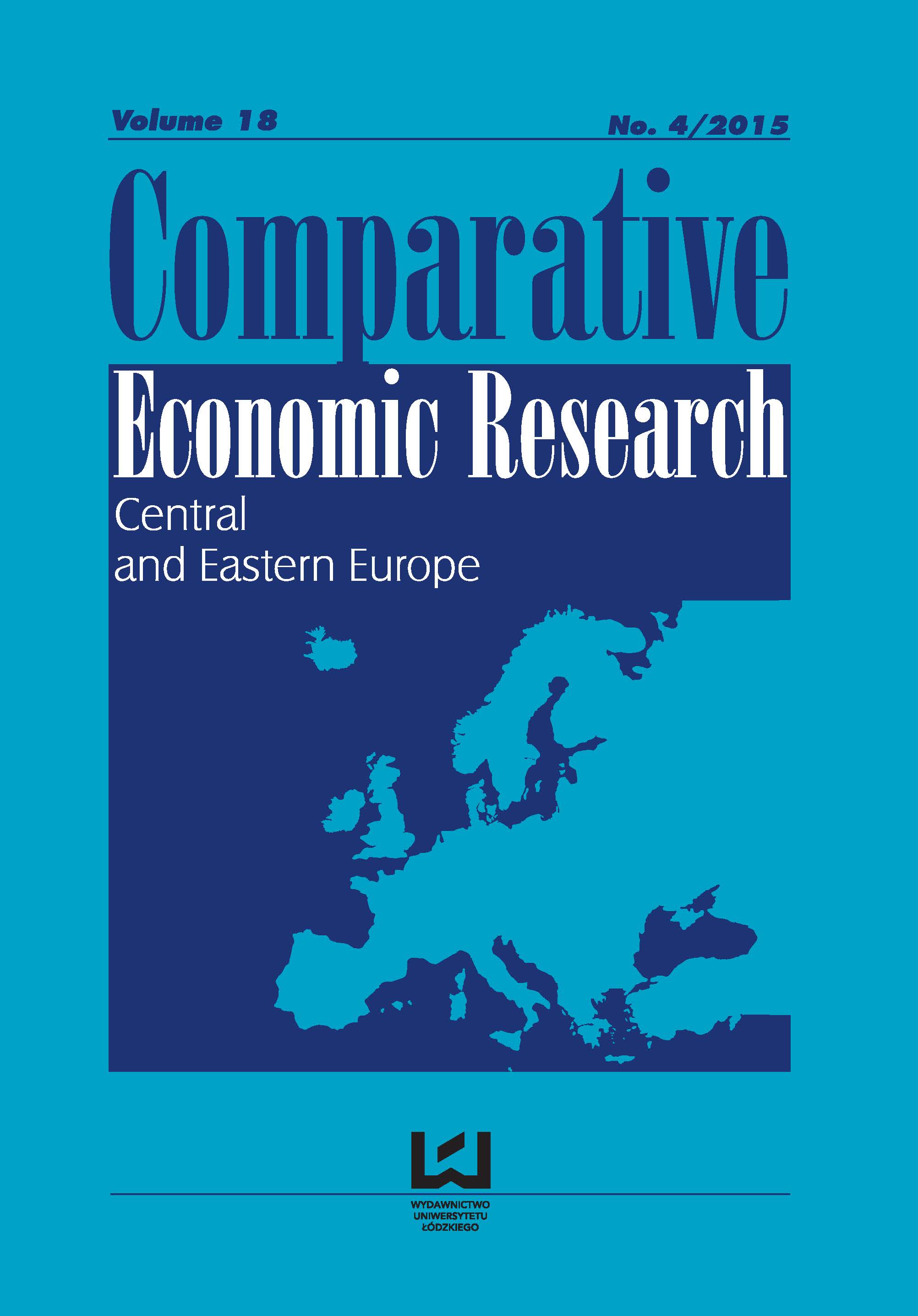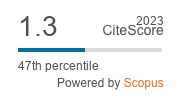The Financial Crisis, Austerity Policy And Greece
DOI:
https://doi.org/10.1515/cer-2015-0026Keywords:
finance crisis, Bail-out for banks, budget and debt crisis, austerity policy, GreeceAbstract
This article contains a brief review of the main causes of the current crisis and concerns strategies of market dogmatism and their impacts, which followed the end of post-war boom and the end of the so-called Bretton Woods System. Rising inequality and deregulation led to increasing investment of speculative capital (casino capitalism), creating a real estate bubble in USA. Owing to public bailouts, this finance capital did not lose so much after the bubble bursts. However, the bailouts created serious problems for state budgets, which were already poor as a consequence of the tax race to the bottom following the specific neoliberal recommendations to surmount the economic crisis. Together with weak economic performance and high interest rates for state bonds - due low rankings by rating agencies - some states in the euro zone were threatened with insolvency. Additionally, home-made negative structures and mismanagement worsened the situation. The financial assistance then provided by the troika were tied to harsh “reforms” in the spirit of the austerity policy. This has led to a social crisis with colossal humanitarian impacts; it is economically a fiasco and has increased the public debt to unbearable proportions, mainly in Greece, a country which might be seen as a laboratory for this strategy. Central and Eastern European countries could learn by the Greek example of austerity policy: First, they should stay longer to their own currency, allowing them to remain competitive by compensating stronger trade partners’ productivity by the chance of devaluating. Second, it is clear that cutting off expenditures will not solve problems in case of aiming at balancing the public budget. Just the opposite, it will increase social and economic problems by down-sizing public and private demand and it will endanger necessary investments in future development (infrastructure, education). That’s why increasing state receipts and a fair tax policy are on the agenda, as long as the rich escape from contributing adequately to state’s action capability.
Downloads
References
Bofinger, P. (2012), Zurück zur D-Mark? Deutschland braucht den Euro, München http://www.droemer-knaur.de/ebooks/7787750/zurueck-zur-d-mark.
Google Scholar
Eissel D. (2013), The shift from welfare state to competition state: the case of Germany, in: Grotowska- Leder, J. and Rokicka, E. (eds.), Quality of life - context, definitions, concepts, interpretations, Lodz, University Press
Google Scholar
Eissel D. (2014). Inequality and the Role of Redistributive Policy, in: Eissel, D./ Rokicka, E./ Leaman, J. (ed.), Welfare state at risk, Cham et.al., Springer
Google Scholar
Friedman, Milton (1962). Capitalism and Freedom, Chicago: Chicago University Press.
Google Scholar
Leaman, J. (2013), The fiscal lessons of the global crisis for the European Union: The de-structive consequences of tax competition, in: Leaman, Jeremy and Waris, Attiya, Tax justice and the political economy of the global capitalism. 1945 to the present, New York, Oxford, Berghahn
Google Scholar
Stiglitz J. (2010). Freefall. Free markets and the sinking of the global economy, London: Pengiun Books.
Google Scholar
Stiglitz J. (2012). The Price of Inequality, New York, London:Norton
Google Scholar
Strange S. (1986), Casino capitalism, New York, StMartins Press, 1st.ed.
Google Scholar
von Hayek F. A (1944). The Road to Serfdom, University of Chicago: Chicago Press.
Google Scholar
Deutsche Bundesbank, div. monthlyreports; www.bundesbank.de
Google Scholar
EU Commission (2011 a), The Economic Adjustment Programme for Greece - Fourth Review - spring 2011; http://ec.europa.eu/economy_finance/publications/occasional_paper/2011/op82_en.htm
Google Scholar
European Commission (2011), Employment and Social Developments in Europe 2011, Nov. 2011
Google Scholar
Flassbeck H., Piketty T., Sachs J. D., Rodrik D., Wren-Lewis S., Open letter to Merkel http://www.analyzegreece.gr/topics/greece-europe/item/276-th-piketty-j-sachs-h-flassbeck-drodrik-s-wren-lewis-austerity-has-failed-an-open-letter-to-a-merkel down-load 11.7.2015.
Google Scholar
Fratzscher M. (2014), Unbequeme Wahrheiten, excerptsfromhisbook ʻDie Deutschland Illusionʼ, Hanser-Verlag 2014, here in: Handelsblatt, 29. September 2014.
Google Scholar
Giannitsis T., Zografakis S.(2015), Greece: Solidarity and Adjustment in Times of Crisis, ʻIMK studyʼ nr 38,March 2015.
Google Scholar
Guajardo, J., Leigh, D., Pescatori, A., (2011), IMF Working Paper, Research Department: Expansionary Austerity: New International Evidence July 2011, abstract.
Google Scholar
Igan D. and Mishra P. (2011), Making Friends, in: Finance & Development, June 2011, Vol. 48, No. 2.
Google Scholar
IMF (2013), Country Report No. 13/156, p. 33, see http://www.imf.org/external/pubs/ft/scr/2013/cr13156.pdf.
Google Scholar
Jaumotte F. et al. (2008), Rising Income Inequality: Technology, or Trade and Financial Globalization? in: IMF Working paper WP/08/185, July 2008
Google Scholar
Johnson S. (2009), The Quiet Coup, in: The Atlantic Online, May 2009, http://www.theatlantic.com/doc/print/200905/imf-advice
Google Scholar
Kadritzke N. (2014), Die Legende vom griechischen Schummeln, in: Blätter für deutsche und internationale Politik 06/2014.
Google Scholar
McKinsey (2011), Global Institute, Global Finance Assets, database http://www.mckinsey.com/insights/global_capital_markets/mapping_global_capital_markets_2011.
Google Scholar
Murray, G. (2014), We are the 1%: Über globale Finanzeliten, in: Aus Politik und Zeitgeschichte 15/2014.
Google Scholar
OECD (2011), Divided We Stand. Why Inequality Keeps Rising, Main Findings, Paris, http://www.oecd.org/els/social/inequality.
Google Scholar
Piketty, T. (2014), Das Ende des Kapitalismus im 21. Jahrhundert?, in: Blätter für deutsche und internationale Politik, 12/2014
Google Scholar
Roos J. (2015), The IMF defaulted on Greece a long time ago, June 30, 2015, in: http://roarmag.org/2015/06/greece-imf-IMF, Greece: Ex Post Evaluation of Exceptional Access under the 2010 Stand-By Arrangement, June 2013 IMF Country Report No. 13/156, p. 33, see http://www.imf.org/external/pubs/ft/scr/2013/cr13156.pdfdefault-bailout/
Google Scholar
Schulmeister S. (2014), Die Finanzmarktkrisen und ihre Folgen. Standortbestimmung, Ausblick, Gegenstrategien, Referat beim 4. Wiener Wirtschaftsdidaktik-Kongress, 21. November 2014 in Vienna; http://www.wu.ac.at/fileadmin/wu/d/i/wipaed/kongresse/wd4/Unterlagen/Schulmeister_Finanzmarktkrisen.pdf.
Google Scholar
Schulmeister S. et al (2008), A General Financial Transaction. Tax Motives, Revenues, Feasibility and Effects, WIFO March 2008.
Google Scholar
Stuckler D., Basu S. (2014), Griechenland als Exempel. Wie die EU-Sparpolitik ein Gesundheitssystem ruiniert, in: Blätter für deutsche und internationale Politik 5/2014.
Google Scholar
Troost A., (2014), Troika-Politik: Hoffnung für Griechenland? 20. März 2014; http://www.dielinke.de/nc/die-linke/nachrichten/detail/artikel/troika-politik-hoffnung-fuer-griechenland
Google Scholar
Downloads
Published
How to Cite
Issue
Section
License

This work is licensed under a Creative Commons Attribution-NonCommercial-NoDerivatives 4.0 International License.











